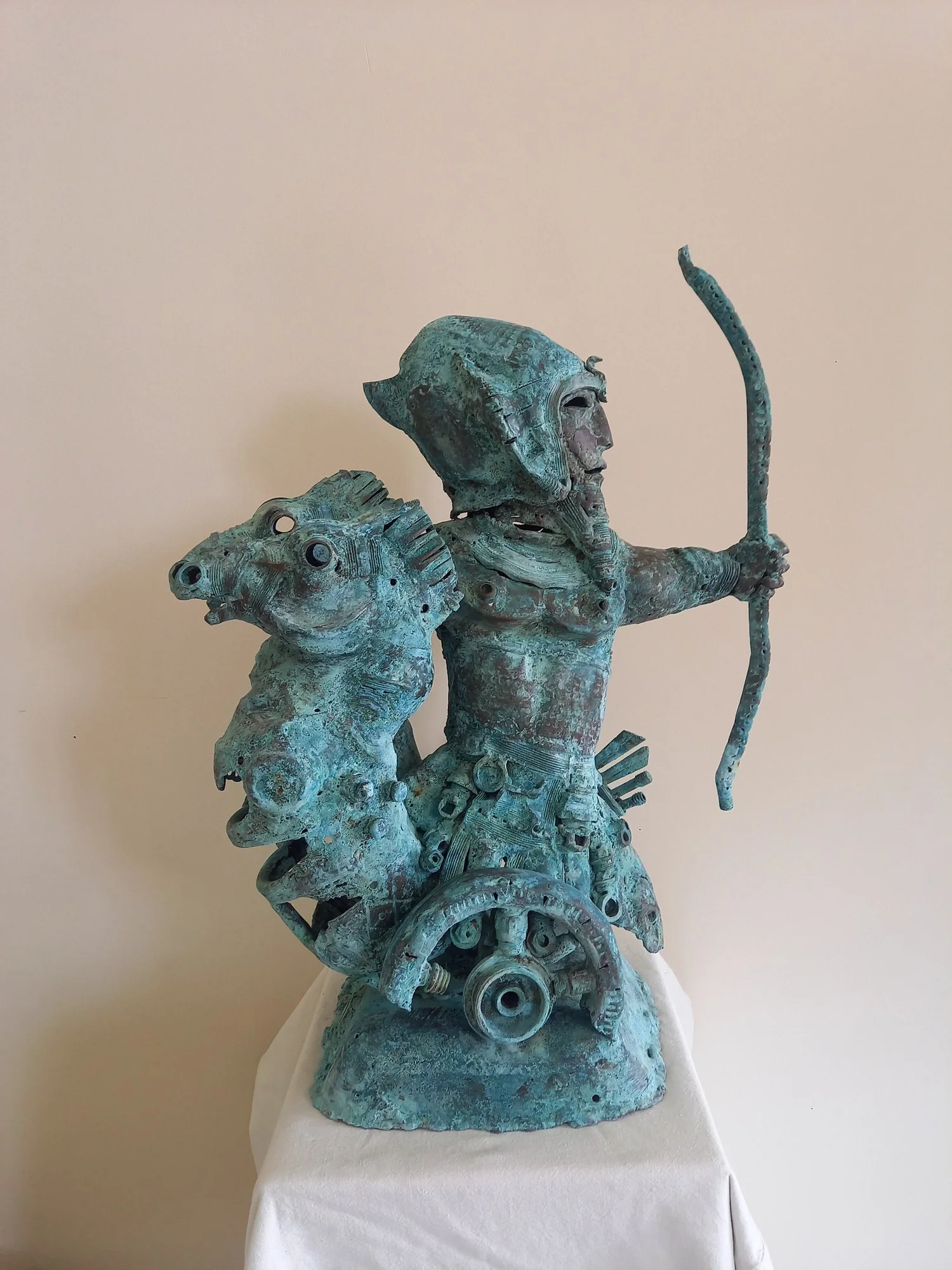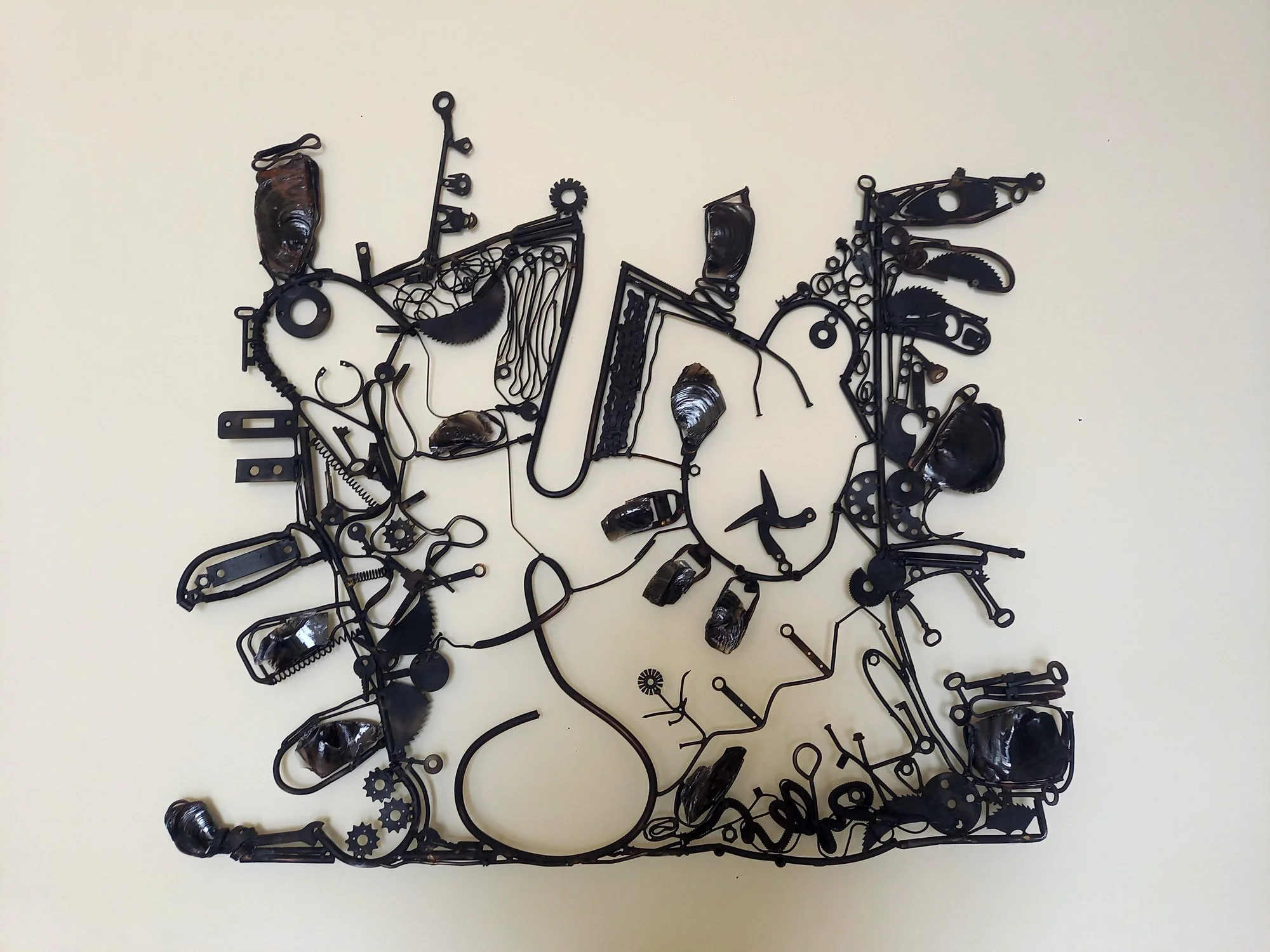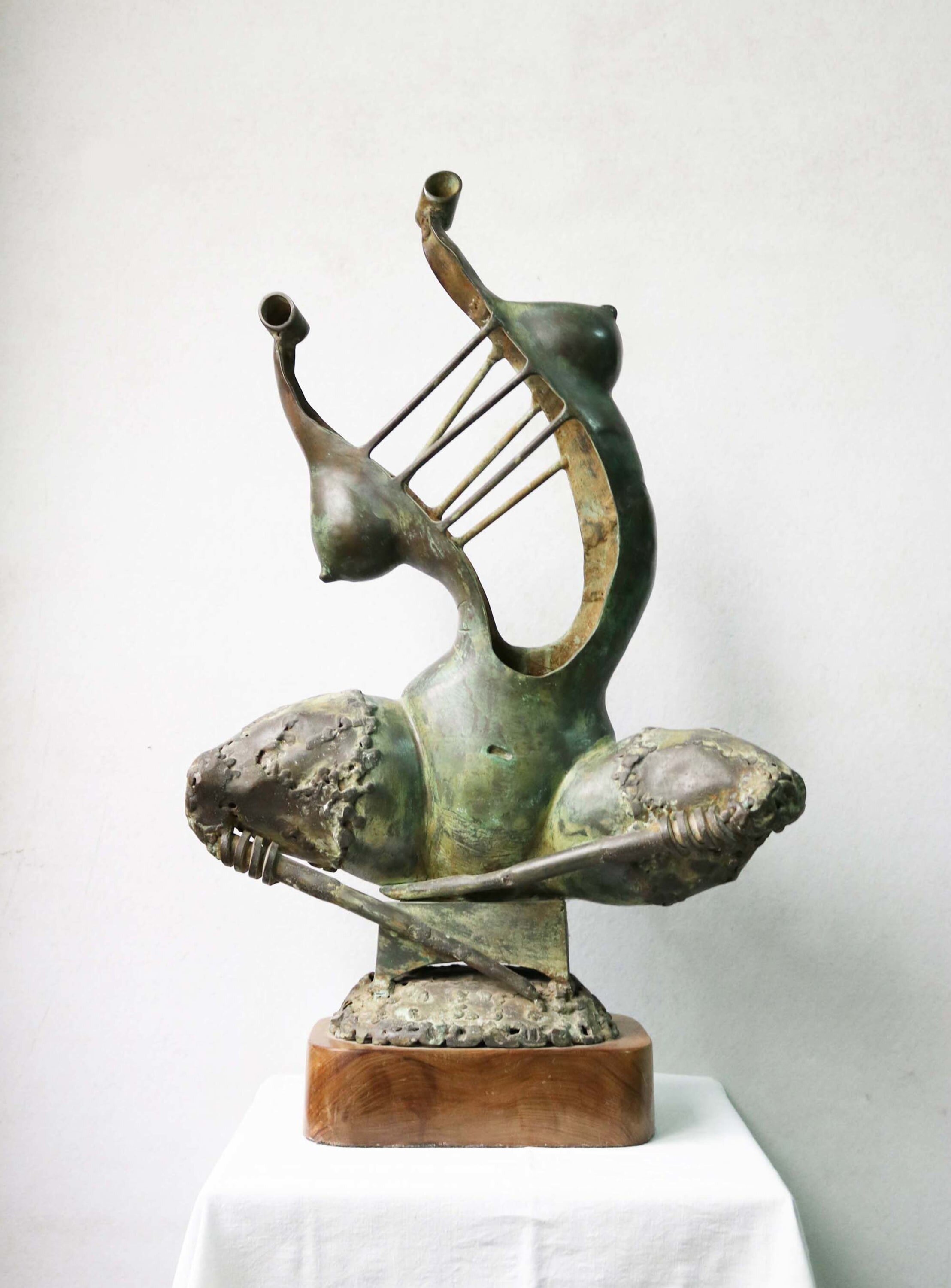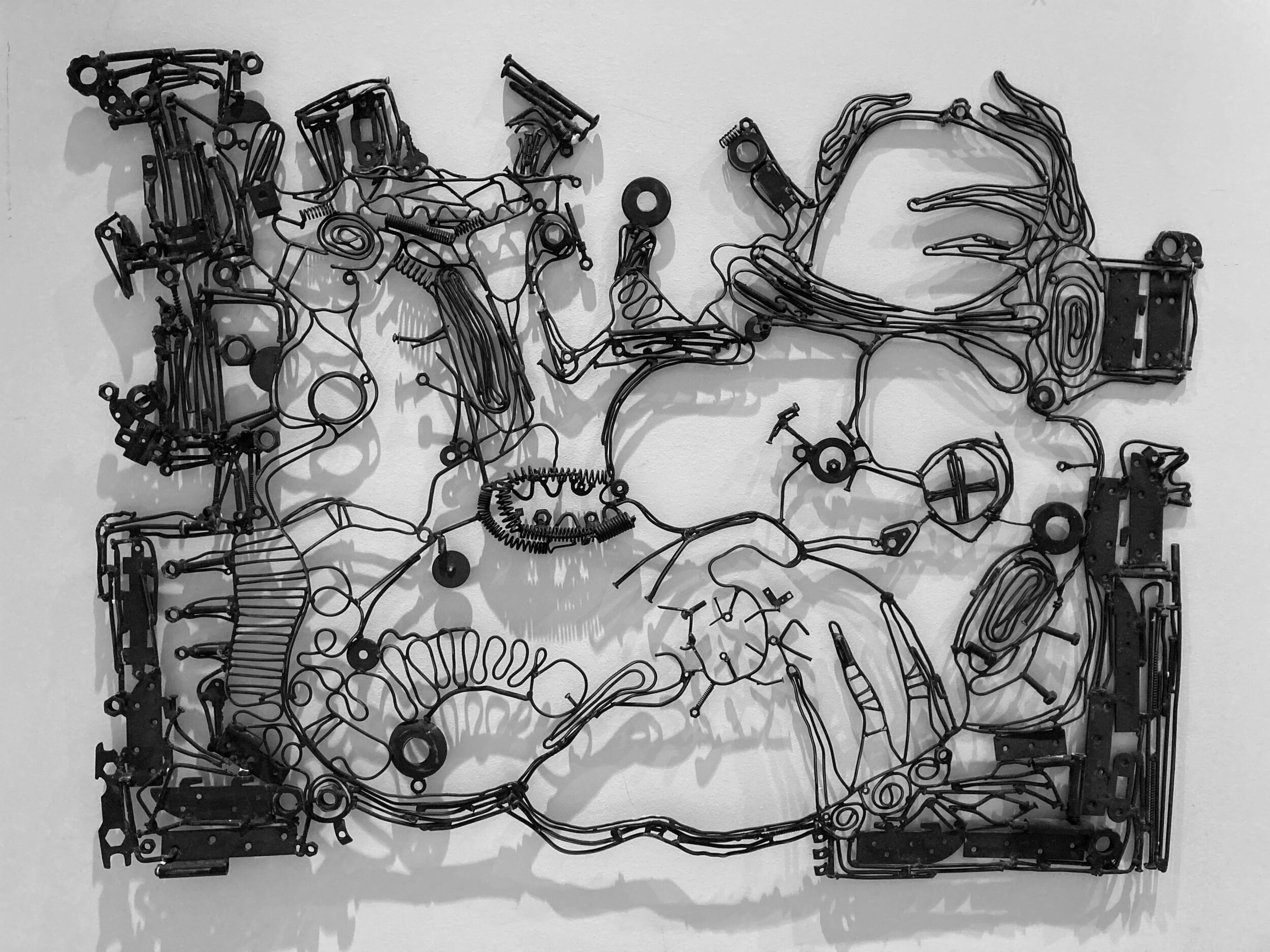ARMANH
“I try to create artworks that will allow talking with the viewer and tell their stories of life.”
BIOGRAPHY
Creation for me is an endless process: the more I search, the more I find, the deeper I dive, the more I get away from the earth’s crust. There are three important components in my artworks - philosophy, humor, and dynamics. When these components are concentrated, the artwork can defend itself by engaging in discussions and become eternal, because the work of art lives longer than the artist. I work with different techniques (welding, soldering, casting, pottery, drawing with coal, pens, and etc.). Each material has its own language. When you understand the language and make the material into an idea, the result becomes a successful work. I am inspired by the artworks of the greatest artists of all times – Fidias, Praxiteles, Auguste Rodin, Henry Moore, and Katsura Funakoshi.
ARTIST INSIGHTS
How are your background and life experiences connected to your art?
I have two allies in my life: my beautiful wife and my creative mind. I create my own heroes inspired by love and ancient mythical stories.
Who are some of your biggest artistic influences?
I am influenced by ancient Urartian, Greek, Egypt and Rome sculptures.
How have you developed your artist career?
The acquaintance and communication with people from different cultures are important for me. I always participate in International ArtExpos, Biennales, and Symposiums in order to get an idea of what is going on in contemporary art. I learn from the museums and galleries more than from the academic study at university.
What does your artistic work intend to communicate to its audience?
Human history is made up of past, present, and future. I try to combine these three things in my artworks and communicate them to my audience in order to create an eternal dialogue between my artworks and the people.
Does your work comment on any current social or political issues?
Recently I created the sculpture "The Child of War" (bronze, 2020). The idea was born when I saw the destroyed childhood of the children living in Artsakh hiding in shelters under the bombings. In the eyes of the children, I read the pain of the horror of war. This was a war of generations. Previously, children used to play with air balloons in their hands, but nowadays the danger comes from a peaceful sky with drones and bombers. The air balloon, which turned into a military drone, depicts the symbols of countries expressing aggression against the Armenians. With the sculpture “Child of War”, I raise my voice and condemn the insidious military policy of the governments. This sculpture refers also to all children of the world, whose childhood was disturbed by the aggression of foreign enemies.
What is one thing you would like your audience to know about you?
My sculptures say more about me than words.
Which current art world trends are you following?
Contemporary artworks having classic backgrounds.
Why have you chosen to sell your work in the 1515 Lincoln Gallery?
I trust the professionalism of the gallerist.
What do you believe makes 1515 Lincoln Gallery distinct from other galleries?
The presentation of European artists' artworks in an American environment.
WATCH
Making of a bronze sculpture by ArmanH
ARTIST STATEMENT
The source of my inspiration comes from the history of an ancient era. I often read about the excavations of Heinrich Schliemann, Arthur John Evans, and others who have found the most durable materials - bronze, ceramics, and glass. Penetrating into the thoughts, perceptions, and feelings, I try to connect those three together. In my art, drawing plays a special role. The secret of getting a three-dimensional form is the energy of the line.
ArmanH at work in his studio
Early Childhood by ArmanH
“My sculptures say more about me than words.”
ARMANH’S AVAILABLE ART
“Bronze, ceramics, and glass - Penetrating into the thoughts, perceptions, and feelings, I try to connect those three together. ”













